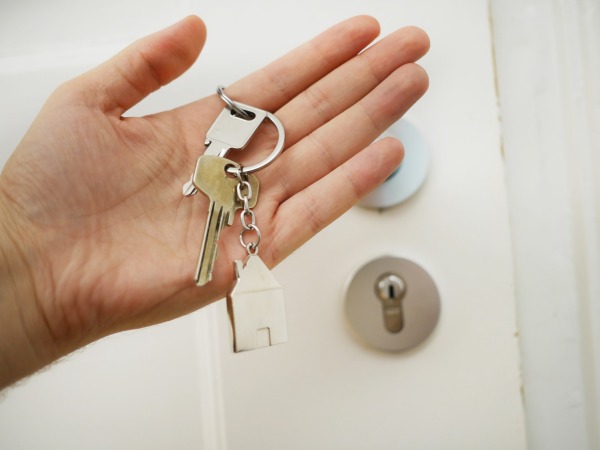Are you a business owner looking to expand your operations? One of the biggest decisions you’ll face is whether to own or rent your commercial property. Both options come with their own set of advantages and drawbacks, and it’s important to consider each carefully before making a decision. In this blog post, we’ll explore the pros and cons of owning vs. renting a business property so that you can make an informed choice for your business. So buckle up and join us as we dive into this exciting topic!
When it comes to owning business property, the primary advantage is that you have ownership of the asset. This gives you security and stability since you won’t have to worry about rising rental rates or sudden terminations of your lease. Furthermore, if your business plans involve expanding or remodeling your space, then owning property would provide more flexibility than renting.
Additionally, if the value of the property increases over time, this could lead to profits if you decide to sell.
On the other hand, there are some drawbacks associated with owning commercial real estate. For starters, it requires a significant financial investment upfront
- typically in the form of a down payment –
- and you will be responsible for all related expenses like insurance and upkeep costs.
Furthermore, if your business plans change unexpectedly and you need to move quickly, selling a property can take much longer than terminating a lease.
Renting business property also comes with its own set of benefits and drawbacks. The most obvious advantage is that it often requires less money up front compared to buying a property – usually just the first and last month’s rent plus any deposits required by the landlord – which means less financial risk for business owners. Furthermore, leasing provides more flexibility since contracts can be renewed or
Introduction: What is Business Property?
There are many factors to consider when deciding whether to own or rent a business property. The following is a brief overview of the pros and cons of each option:
Owning:
- You have control over the property and can make changes as needed.
- You may be able to get tax breaks for owning the property.
- The value of the property may appreciate over time, providing you with a return on investment.
- You are responsible for all maintenance and repair costs.
- It can be difficult to sell the property if you decide to move your business.
Renting:
- There is typically more flexibility in the length of the lease agreement.
- You are not responsible for any maintenance or repair costs.
- If you need to move, it is usually easier to break a lease than to sell a property.
- The monthly rental payments can be higher than mortgage payments on comparable properties. -You do not have the same control over the property as you would if you owned it.
Ownership vs. Renting: Pros and Cons:
When it comes to business property, there are pros and cons to both owning and renting. Here are some things to consider when making your decision:
Owning:
- You have the potential to build equity in your property over time.
- You have more control over renovations and other changes to the property.
- Property taxes may be tax deductible.
- Maintenance and repair costs are generally the responsibility of the owner.
Renting:
- There is no long-term financial commitment involved.
- Rental rates may increase or decrease over time, giving you some flexibility in your budget.
Landlords are typically responsible for most or all maintenance and repairs. -You may not be able to make permanent changes to the property. -Rent is not tax deductible.
Tax Implications of Owning vs. Renting:
- When it comes to business property, there are tax implications to both owning and renting that you need to be aware of. If you own your property, you will be able to deduct mortgage interest and property taxes on your federal income tax return. Additionally, any capital improvements made to the property can be depreciated over time.
- If you rent your business property, you can deduct your rental expenses on your federal income tax return. However, you will not be able to take advantage of any tax breaks for capital improvements since you do not own the property.
- Before making a decision on whether to own or rent a business property, it is important to speak with a tax advisor to determine which option would be more beneficial for your particular situation.
- The tax implications of owning vs. renting business property can be complex and vary depending on the situation. It is important to consult a tax advisor for specific guidance on how owning or renting will affect your taxes.
In addition to the tax implications, it is important to consider other factors such as the length of time you plan to stay in one location and whether you can afford to purchase or maintain a property. It is also important to think about whether or not owning a property will be cost-effective in the long run.
Ultimately, the decision to own or rent business property will depend on your individual needs and circumstances.
Financial Considerations When Deciding between Ownership and Renting:
The biggest financial consideration when deciding between ownership and renting business property is the initial investment. If you are buying a property, you will need to have enough money for the down payment as well as closing costs. If you are taking out a loan to finance the purchase, you will also need to factor in the interest payments. On the other hand, if you are leasing a property, your only upfront cost will be the security deposit.
Another financial consideration is the ongoing costs of ownership versus renting. When you own a property, you are responsible for all maintenance and repairs. You will also need to pay property taxes and insurance. When you lease a property, these costs are typically included in your monthly rent payment.
You need to consider your future plans when making a decision between owning and renting business property. If you plan on selling the business in the future, it may be difficult to find a buyer who is willing to assume an existing lease. If you own the property outright, you will have more flexibility when it comes time to sell.
Finally, you need to consider the potential appreciation or depreciation of the property. If you own the property, you can benefit from any increases in market value. On the other hand, if you lease a property and the market value decreases, your rent payments will not decrease along with it.
Other Factors to Consider When Choosing Between Ownership and Renting:
There are a number of other factors to consider when choosing whether to own or rent a business property:
- The amount of capital you have available. If you have the required amount of capital upfront, then owning may be the better option. However, if you don’t have the required funds available, then renting may be a more feasible option.
- The length of time you need the property for. If you only need the property for a short period of time, then renting may be the better option. However, if you anticipate needing the property for a longer period of time, then owning may be a better investment.
- The amount of maintenance and upkeep required. If you’re willing and able to perform all of the necessary maintenance and upkeep on the property, then owning may be the better option. However, if you’re not prepared to handle these responsibilities, then renting may be a wiser decision.
- The potential for capital appreciation. Owning can provide you with the potential to benefit from capital appreciation in your property while renting does not provide this opportunity.
- Tax considerations. Owning a property may provide you with some tax benefits, including deductions for mortgage interest and other expenses associated with the upkeep of the property. Renting may also have some tax benefits depending on your situation and local laws.
- Location. The location of the property is an important factor when choosing between renting and owning. If you plan to own the property, it’s important to consider whether or not it is in an area that will appreciate in value over time. On the other hand, if you plan to rent, then it’s important to consider the local amenities and public transportation options available.
- Future plans. It’s also important to consider your future plans when deciding whether to buy or rent a business property. If you anticipate needing more space in the future, then buying may be a better option since you’ll have more flexibility with upgrading and expanding your space as needed. Conversely, if you’re planning on eventually selling your business or moving out of the area, then renting may be a wiser decision since there would be no long-term commitment associated with a lease agreement.
Ultimately, there are a number of factors that must be considered when deciding whether to own or rent a business property. It’s important to weigh all of these factors carefully in order to make an informed decision about which option is best for your situation.
Conclusion
Owning business property can be a sound investment, but it is important to weigh the pros and cons before making such a commitment. Renting commercial property may save you money in the short term and provide more flexibility while owning offers potential tax advantages, equity buildup for future expansion or renovation projects, and greater control over your space. Ultimately, it depends on your budget and long-term plans for the business that will help you decide whether buying or renting is right for you.
When considering whether to buy or rent business property, it is essential to consider the costs associated with both options. For instance, there are upfront costs and ongoing expenses with buying a commercial property such as taxes, insurance, maintenance, and repairs. With renting, you may be subject to annual rent increases and may not have the same level of control over your space as an owner would have. Additionally, when making the decision it is important to evaluate any potential tax benefits or loan opportunities that may be available when buying commercial property.
Ultimately, it comes down to weighing the pros and cons of each option. Owning a business property can provide stability and allow for potential equity buildup in the future; however, renting can offer more flexibility and cost savings in the short term. Before you make a commitment to either option, it is important to consider your budget and long-term plans for the business. Doing so will help you decide which option is right for you—and ensure that you make the best choice for your company’s needs.


